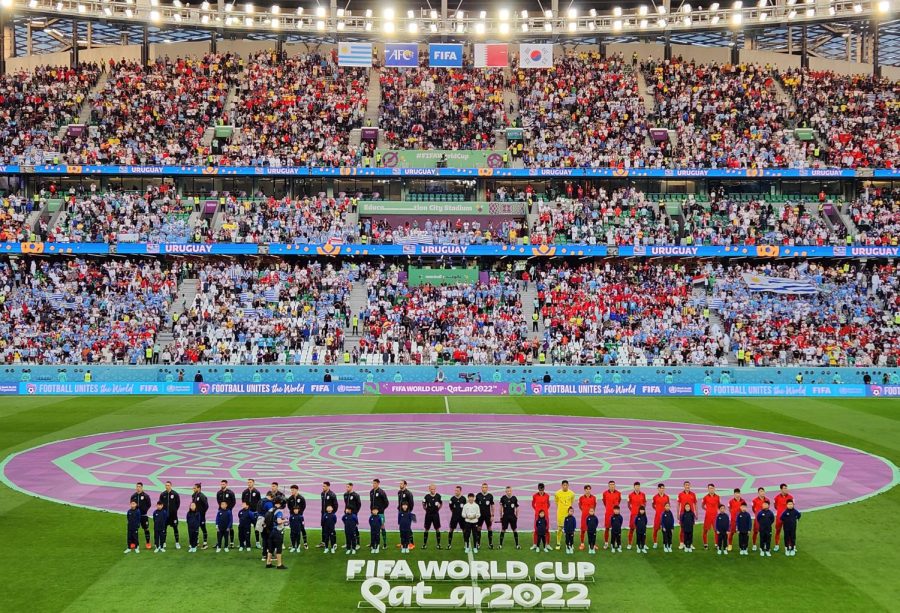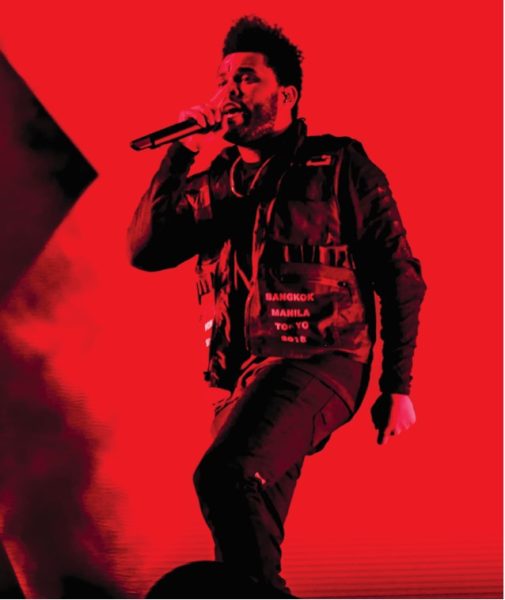What Qatar doesn’t want the world to see
December 20, 2022
Big sporting events often come with political and cultural tensions; with the 2022 FIFA World Cup it is no different. The tournament is hosted in Doha, Qatar and the controversies surrounding the cup are immense. With poor labor laws, strict government regulations, an anti-LGBTQ agenda, and a large carbon footprint, there is no denying the build-up to this tournament has been especially troubled.
With Qatar receiving the rights to host the tournament in 2010, the government had 12 years to complete a grand construction scheme costing $220 billion. Seven new stadiums, a new public transportation system, and several hotels needed to be built to accommodate the 1.5 million anticipated fans for the World Cup. Qatar, a nation of 2.9 million needed to outsource labor to fulfill growing demands for workers. The Qatari government hired hundreds of thousands of migrant construction workers, mainly from South Asia.
The treatment surrounding these workers is where much of the controversy has been spewing from. According to the Guardian, an estimated 6,500 migrant workers have died in Qatar since the FIFA World Cup has been awarded to the country. The human rights group, Amnesty International, describes migrant workers having their passports confiscated, given poor housing, and often forced to work long hours in the desert heat. The migrant workers in Qatar are compared to modern day slaves with the abuses they face.
The Qatari government has made some reforms to labor laws, but still, workers are treated poorly. “Migrant workers continue to face wage abuse and exorbitant recruitment fees,” according to Human Rights Watch. Additionally, many workers’ health deteriorated quickly in the desert heat. Workers succumbed to a plethora of ailments including premature heart attacks and other heart-related illnesses. Furthermore, a whopping two hundred Nepali migrant workers have committed suicide in Qatar since 2010 according to the New York Times.
In Qatar, the new hotels, lavish stadiums, brand new metro systems, and millions of fans flying in all come at an environmental cost. FIFA’s carbon dioxide emissions estimate for the last world cup was 2.1 million metric tons. This year FIFA estimates that it is 3.5 million metric tons. Yet, Lancaster University estimates a whopping 10 million metric tons of carbon dioxide emissions have been produced in the oil-rich nation.
Despite this, the Qatari government promotes that this year’s World Cup is a fully carbon-neutral World Cup. This is a misleading statement, as it is based on offsetting emissions. “It gives the impression that we can build massive state-of-the-art stadiums … and fly people from all over the world to watch football matches and that’s somehow compatible with reaching climate targets,” said Gilles Dufrasne, a researcher at the Brussels-based non-governmental organization Carbon Market Watch in an interview with PBS.
Additionally, Qatar is also anti-LGBTQ. The country prohibits homosexuality, with it being completely illegal. The Qatari government welcomes everyone for the World Cup, but their laws say otherwise. The Qatar World Cup ambassador, Khalid Salman, labeled homosexuality as “damage in the mind” in an interview with a German news source. Qatar is not open to LGBTQ fans or soccer players for this year’s world cup. This is a violation of human rights with LGBTQ rights being a part of human rights that are inherent to all human beings without discrimination, according to the United Nations.
Qatar’s government has developed strict regulations that are upsetting fans. A major one is the banning of alcohol, two days prior to the world’s biggest sporting event. Sales are still permitted at fan events in licensed venues, as well as in-stadium luxury suites. Yet, these venues are only accessible to the affluent and rich who choose to pay top dollar. The sale and consumption of alcohol are banned in all eight stadiums in Doha. Qatar originally promised to allow alcohol in the country to appease FIFA executives as a profit booster. Despite that, the Qatari government insisted on the ban as it aligned with their conservative Muslim beliefs. The newly passed legislation allows fans only one option for beer: non-alcoholic Budweiser Zero.
Now that the tournament is up and running, FIFA urges the fans and athletes to focus on football, setting aside the controversies. It is now up to the fans and players to what extent they are willing to do so.













